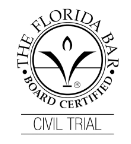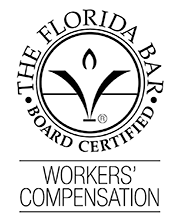SERIOUS & PERSONAL INJURY
-
What are the most common causes of serious injury?
Severe back, neck or brain injury is commonly caused by car or truck accidents, falls or sports injuries. Regardless of the cause, these injuries can lead to very serious problems if they are not addressed in a timely manner.
-
What are some signs of brain injury?
People who suffer brain injuries may or may not exhibit symptoms. A brain injury victim may be forgetful or become easily confused. A brain injury victim may not seem completely normal and eventually suffer irreversible harm. If you or a loved one has any of these symptoms after an accident, we urge you to seek medical help immediately.
-
I was recently involved in a car accident. I hurt my neck but it doesn’t seem that bad. Should I wait to see if it gets worse before I visit a doctor?
No. At Avera & Smith, we advise you to get your injuries checked out right away. You may be doing more damage by not seeing a doctor.
WRONGFUL DEATH
-
Who is entitled to bring a wrongful death claim?
A wrongful death action is brought by the personal representative of the decedent’s estate. The personal representative has a duty to bring all claims available on behalf of the estate and all survivors recognized by Florida’s Wrongful Death Act.
-
What do I need to prove in order to bring a successful claim in Florida?
Florida law requires that your loved one died as a result of someone else’s negligent, reckless or intentional conduct.
-
How do I know how much my claim is worth?
The value of your claim will depend on several factors, all of which will be discussed at your initial consultation with our Gainesville wrongful death lawyers. One focus will be on the lost earnings of the deceased individual, along with several other factors.
-
Does Florida law allow recovery for pain and suffering by the deceased?
Florida’s Wrongful Death Act compensates the decedent’s survivors for pain and suffering, mental anguish, loss of companionship and other damages they suffered as a result of the decedent’s death.
-
How long does it usually take to complete a wrongful death lawsuit?
Every claim is different. However, Avera & Smith knows how important it is to you to have your case competently and successfully tried. The typical case lasts approximately 18 months, but it may take longer if there are complex legal issues involved. The important thing is to begin to prepare the case for trial the moment your counsel is retained.
WORKERS’ COMPENSATION
-
What should I do if I am injured on the job?
You should report the injury to your employer immediately. While the Florida Workers’ Compensation Law gives you 30 days to report the injury, it is generally best to report it immediately. Upon receiving notice of your work injury, your employer must report the injury to its workers’ compensation insurance carrier within 7 days. Then, the insurance company must send you an informational brochure within 3 days of receiving notice form your employer.
-
What if my employer will not report my injury to the insurance company?
You can report the claim directly to your employer’s workers’ compensation insurance carrier. If you need assistance reporting your injury, please contact us.
-
Can my employer force me to take a drug test after a work injury?
You can refuse to take a drug test; however, if you refuse to submit to a drug test, it is presumed that the injury was occasioned primarily by the influence of drugs in the absence of clear and convincing evidence to the contrary. If you submit to a drug test and test positive for alcohol or drugs, there is a presumption that the injury was caused by alcohol or drugs. If your employer has implemented a “drug-free workplace” and meets the necessary criteria, the presumption may only be rebutted by evidence that there is no reasonable hypothesis that the intoxication or drug influence contributed to the injury. In the absence of a “drug-free workplace” program, the presumption may be rebutted by clear and convincing evidence that the intoxication or influence of the drug did not contribute to the injury. Although a positive drug test may make a case difficult, there are numerous requirements that the employer and testing entities must meet in order to utilize the positive test. For this reason, it is best that you consult with one of our workers’ compensation attorneys regarding the specific facts of your case.
-
What benefits am I entitled to if I am injured on the job?
There are two main categories of workers’ compensation benefits: (1) medical benefits, and (2) wage loss benefits. With respect to medical benefits, your employer’s insurance company must pay for all “authorized” medical treatment that is medically necessary and causally related (51% or more) to the work injury. “Authorized” means that, in most circumstances, your employer’s insurance company gets to choose your doctors. If you receive unauthorized medical treatment, you may be responsible for the bills. Regarding wage loss benefits, there are four main categories of benefits: (1) Temporary Partial Disability benefits, (2) Temporary Total Disability benefits, (3) Permanent Impairment benefits, and (4) Permanent Total Disability Benefits. 1. Temporary Partial Disability Benefits: If the physician authorized by the workers’ compensation insurance carrier assigns physical restrictions or limitations (often commonly referred to as “light duty” or “modified duty”) prior to the date of maximum medical improvement and your employer cannot accommodate the restrictions, you are entitled to Temporary Partial Disability benefits. You could also be entitled to Temporary Partial Disability benefits if your employer accommodates your physical restrictions and your income falls below 80% of your pre-injury average weekly wages. If your employer offers a light-duty assignment within your restrictions and you refuse the work, the employer may deny temporary partial disability benefits. If this happens, you have to prove that your refusal is justifiable. 2. Temporary Total Disability Benefits: If the physician authorized by the workers’ compensation insurance carrier takes you out of work entirely (i.e., no work status) prior to the date of maximum medical improvement, you are entitled to Temporary Total Disability benefits equal to 66 2/3 percent of your pre-injury average weekly wage. 3. Permanent Impairment Benefits: When you reach maximum medical improvement, the authorized treating physician will determine whether you have a permanent injury based on a uniform permanent impairment rating schedule. For each percentage impairment point you are entitled to the following: a. 2 weeks of impairment benefits for each percentage point between 1% and 10%. b. 3 weeks of impairment benefits for each percentage point between 11% and 15%. c. 4 weeks of impairment benefits for each percentage point between 16% and 20%. d. 6 weeks of impairment benefits for each percentage point from 21% and higher. The weekly amount of permanent impairment benefits is 75% of the amount of Temporary Total Disability Benefits. However, if you return to work and earn an income equal to or in excess of your pre-injury average weekly wage, the permanent impairment benefits will be reduced by 50%. 4. Permanent Total Disability Benefits: In certain circumstances after you reach maximum medical improvement, you may be permanently and totally disabled. If so, you are entitled to compensation equal to 66 2/3 percent of your pre-injury average weekly wage. Generally, entitlement to Permanent Total Disability Benefits ceases when you reach age 75. If the accident occurred on or after you reached age 70, Permanent Total Benefits are payable for 5 years. Certain catastrophic injuries give rise to a presumption that you are permanently and totally disabled: a. Spinal cord injury involving severe paralysis of an arm, a leg, or the trunk; b. Amputation of an arm, a hand, a foot, or a leg involving the effective loss of use of that appendage; c. Severe brain or closed-head injury as evidenced by: i. Severe sensory or motor disturbances; ii. Severe communication disturbances; iii. Severe complex integrated disturbances of cerebral function; iv. Severe episodic neurological disorders; or v. Other severe brain and closed-head injury conditions at least as severe in nature as any condition provided in sub-subparagraphs i.-iv.; d. Second-degree or third-degree burns of 25 percent or more of the total body surface or third-degree burns of 5 percent or more to the face and hands; or e. Total or industrial blindness. In all other cases, in order to establish permanent total disability, you must establish that you are not able to engage in at least sedentary employment, within a 50-mile radius of your residence, due to your physical limitations. There are three ways to meet this standard: a. permanent medical incapacity to engage in at least sedentary employment, within a 50-mile radius of your residence, due to physical limitation; b. permanent work-related physical restrictions coupled with an exhaustive but unsuccessful job search; or c. permanent work-related physical restrictions that, while not alone totally disabling, preclude you from engaging in at least sedentary employment when combined with vocational factors.
-
What does maximum medical improvement mean?
The date of maximum medical improvement (commonly referred to as “MMI”) is the date when your authorized treating physician is of the opinion that further recovery from, or lasting improvement to, an injury or disease can no longer be reasonably anticipated, based upon reasonable medical probability.
-
What if I am not permanently and totally disabled but I cannot return to the work I did before my injury?
The law provides reemployment services to help you return to work. Services may include vocational counseling, transferable skills analysis, job-seeking skills, job placement, on-the-job training, and formal retraining. You could be eligible for additional temporary wage loss benefits while you receive reemployment services.
-
Can my employer fire me after a work injury?
No, your employer cannot discharge, threaten to discharge, intimidate, or coerce you for filing a workers’ compensation claim. If your employer takes such action, you may have a claim under section 440.205, Florida Statutes.
-
Are there benefits for pain and suffering?
No. Florida Workers’ Compensation Law does not pay benefits for pain and suffering.
-
Can I sue my employer for personal injuries?
Generally, the answer is “no.” Under most circumstances, employers have “workers’ compensation immunity” from negligence claims. This means that your remedies are limited to the benefits provided by the Florida Workers’ Compensation Law. However, if your employer commits an “intentional tort” that causes injury or death, you can sue your employer. An “intentional tort” occurs when: a. The employer deliberately intended to injure the employee; or b. The employer engaged in conduct that the employer knew, based on prior similar accidents or on explicit warnings specifically identifying a known danger, was virtually certain to result in injury or death to the employee, and the employee was not aware of the risk because the danger was not apparent and the employer deliberately concealed or misrepresented the danger so as to prevent the employee from exercising informed judgment about whether to perform the work.
-
What should I do if my employer denied my claim for workers’ compensation benefits?
You should contact an attorney without delay.
MEDICAL MALPRACTICE
-
When do I have to file a claim for medical malpractice or medical negligence?
In Florida, a claim for medical malpractice or medical negligence has a statute of limitations of two (2) years and a statute of repose of four (4) years. That means that a claim must be filed within two (2) years of when the claimant knew or should have known that their injuries were caused by medical malpractice or medical negligence, but in no circumstance, more than four (4) years from when the alleged malpractice or negligence occurred. This is different than most claims for damages in Florida, so if you believe you or a loved one suffered injuries as a result of medical malpractice, it is important to consult an attorney who specializes in this area as soon as possible.
-
How much does it cost to make a claim for medical malpractice or medical negligence?
Attorneys specializing in medical malpractice claims in Florida work on what is called a “contingency fee.” Simply put, that means that if there is no settlement or judgment from a Court, the attorneys get nothing. However, attorneys who practice in this area of law also spend a lot on the costs of the case, which they don’t get back if you don’t win. These costs can be large in medical malpractice claims, which require things such as expert witnesses. At Avera & Smith, there is no cost to you unless we win for you.
-
How long do claims for medical malpractice take once I make one?
Medical malpractice claims in Florida are subject to very specific timelines and rules governed by Florida Statutes. Before you can even go to a court, you first have to go through what is often called the “presuit process” of presenting your claim to the other side, along with opinions from medical experts and other materials, and giving the other side the opportunity to do their own investigation. After the presuit period ends, either your case will resolve, or a lawsuit will need to be filed. If it goes to a lawsuit, some medical malpractice claims can take several years. However, no attorney can say for certain how long the entire process will take in any particular case.
-
How much is a medical negligence claim worth?
Any claim for injuries or death caused by someone else’s negligence has a value specific to their particular case. There is no crystal ball that any attorney can look into and answer that question. However, the value of a medical negligence claim is tied to many factors, including the damages caused by the negligence in the form of medical bills, lost wages, and other specific monetary losses. There are also damages which are intangible, what many refer to as “pain and suffering” or “mental anguish” or “loss of the capacity for the enjoyment of life.” It is in these intangible damages that victims of medical negligence most often find the justice and compensation they are seeking and believe is appropriate. At Avera & Smith, we have decades of experience presenting these types of claims for damages for our clients.
-
If I am injured by doctors at a hospital, who is responsible?
Oftentimes, both the doctors and the hospital are responsible if someone suffers medical negligence or malpractice while hospitalized. Having an attorney who knows the importance of, and the means of discovering, the relationship between the specific doctors or nurses and the hospital is important. This is because not every doctor or nurse at a hospital is necessarily an “employee” of the hospital, and the legal relationship between them is important to bringing your claim against either.
-
What if the medical malpractice led to death?
In the tragic circumstance where medical negligence or medical malpractice lead to someone’s death, the survivors of the victim may have a claim under Florida’s Wrongful Death Statute. The laws are specific on who, when, and how such claims are to be raised, and at Avera & Smith we have experience in serving as counsel for families going through such tragedy. With our help, our clients need only focus on their grieving, with the confidence that we will take care of the legal issues surrounding the claim.
-
Do I have a case for medical malpractice?
You might, but every case has its own facts and circumstances. At Avera & Smith, we do our best to investigate medical malpractice claims with the help of medical experts before telling anyone whether their claim is a case. In Florida, these cases are extremely difficult due to decades of the rights of people injured by medical negligence being stripped away. So, before we can answer this question for you, please contact us to schedule a meeting with our attorneys and medical experts who can work towards that answer, together.
CRIMINAL DEFENSE
-
Do I need an attorney even if I am guilty and plan to plead guilty?
Most criminal defense attorneys, including our firm, offer a free consultation. It is always a good idea to get as much information as possible before entering a plea on a criminal case that could result in a permanent criminal record that you are stuck with for life. A competent attorney will review the evidence in the case, which can result in discovery of errors, omissions and mistakes that could lead to motions to suppress evidence and potentially result in the case being dismissed. Additionally, if you hire an attorney, he or she can negotiate a plea that could reduce your sentence, or admission to a diversion program that would result in the case being dismissed.
-
Is there a difference between being arrested and being charged with a crime?
Yes. Just because you have been arrested does not necessarily mean you have been charged with a crime. Law enforcement officers can arrest you if they have probable cause that you have committed a crime. In most cases, after you are arrested, the case goes to the State Attorney’s Office and is assigned to a prosecutor who will review the evidence and will usually talk to witnesses and/or the alleged victim and your attorney (if you have one) before deciding whether to charge you with a crime. This is another reason why it is so important to speak with an attorney immediately after you are arrested.
There are some offenses, usually driving-related, that an officer can charge you with directly, such as No Valid Driver’s License, Driving on Suspended License and DUI. Even if an officer charges you with one of these offenses, a State Attorney will be assigned and they have the authority to change or even dismiss the charges filed by law enforcement officers. -
Do I have to talk to the police?
No, other than to identify yourself. If you are the subject of questioning by law enforcement you can and should ask for and consult with an attorney. Remember, you have a constitutional right to remain silent AND to consult with counsel. If you just say “I am not talking,” law enforcement can just wait; you must specifically ask to speak with an attorney.
-
I have an arraignment court date; do I have to go?
Yes – unless you have hired an attorney, who can often excuse your presence by filing appropriate paperwork, such as a written plea of not guilty.
-
What is an arraignment?
Arraignment is your first opportunity to be presented with the formal charges in Court and to enter a plea of Guilty, No Contest or Not Guilty. If you have an attorney, they will enter a written plea of Not Guilty on your behalf. You can always change your plea at a later date.
-
Do I get to see all of the evidence in my case?
Yes, If you have an attorney or request on your own to participate in Discovery, the State is required to provide you with all of the evidence in the case, even it hurts the State’s case against you.
-
If someone who is listed as the victim in the case doesn’t want the case to be prosecuted, can you still be prosecuted by the State?
Yes, the State Attorney’s Office has the right to prosecute you for any violation of Florida law. The most common instances of the State Attorney prosecuting against the wishes of the alleged victim involve cases of alleged domestic violence.
-
What is the difference between a misdemeanor and a felony?
Misdemeanors are considered minor crimes that have a maximum penalty of 60 days in jail for a 2nd degree misdemeanor, or one year in the county jail for a 1st degree misdemeanor. Felonies can result in up to five years in state prison and a $5,000 fine for a 3rd degree felonu; 15 years in prison and a $10,000 fine for a 2nd degree felony; 30 years in prison and a $10,000 fine for 1st degree felonies; or up to life in prison and a $15,000 fine for a Life Felony.
-
Can I get my criminal record sealed?
Yes, if you meet certain criteria, including: no prior convictions; the case you want to seal was either dropped or adjudication was withheld; and it was not a crime that specifically prohibits you from a sealing. You should seek the counsel of attorney to see if your charges can be sealed. You can also look on the Florida Department of Law Enforcement (FDLE) website for a list of crimes that cannot be sealed. There is also an expungement process that can occur 10 years after a sealing, or immediately if the case is dismissed.






